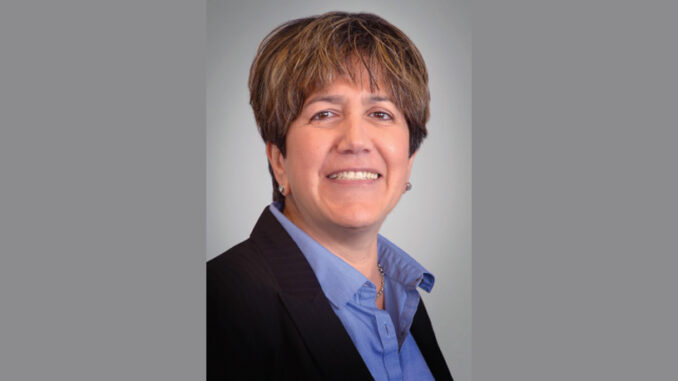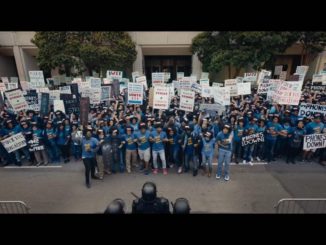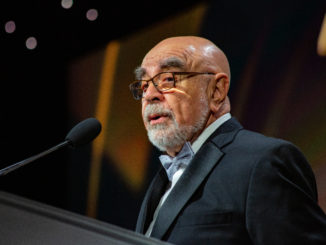
By Cathy Repola
In 1937, Amelia Earhart mysteriously disappeared over the Pacific Ocean, “Snow White and the Seven Dwarfs” premiered, the fantasy novel “The Hobbit” was published, San Francisco’s iconic Golden Gate Bridge officially opened, and the Society of Motion Picture Film Editors was founded.
We are an 85-year-old labor organization, but getting here took some evolution. Local 683 (Stage & Picture Operators; now Laboratory Film-Video Technicians) was chartered as an IA local in 1929; Local 771 (the Editors Guild local in New York) was chartered as an IA local in 1942; Local 776 (Editors Guild in Hollywood) in 1944; and the Screen Story Analysts in 1954. Through mergers over the years, these locals combined to make up what is now Local 700.
The tools and processes for the members and the staff have certainly changed repeatedly over all these years. The entertainment industry is always in flux, sometimes on multiple levels. The old studio system broke down, multinational companies swooped in, new distribution models came and went. It is impossible to review all that evolved over the course of these 85 years, and yet I think we can all agree on one thing: Some changes have been for the better, and some for the worse.
To that latter point, there has been in recent years a growing and unreasonable pressure, and an increasingly unrealistic workload, put upon many of our members in the classifications we represent. All of this caused a gradual erosion of what used to be a rewarding, creative, and enviable industry.
This is a large part of what caused the divide over last year’s Basic Agreement among the Hollywood rank-and-file IA members. And these issues will stay in the forefront during the next round of Basic Agreement talks in 2024. One thing I kept saying during the last ratification process is worth repeating: Many of the changes the members are rightfully demanding need to be addressed through a cultural shift in this industry. And wouldn’t it be ideal if the decision makers not only realized this but were bold enough to step up and do the right thing, and pull along those less inclined? There are those who have the power to effectuate change, and we call upon them to do so.
That leads to an important discussion we recently had at a board of directors meeting. The discussion centered around job duty overload, which is when workers are assigned duties not meant for their job classification. Assistant picture editors ARE NOT sound editors or “sound designers.” Assistant picture editors ARE NOT music editors. Assistant picture editors ARE NOT visual effects editors. If sound editing or “sound designing” is required, then a sound editor must be hired to perform that work. If music editing is required, a music editor must be hired to perform that work. If visual effects editing work is required, then an editor must be hired to do that work.
Time is up for the assistant editor classification to be a dumping ground for job duties that should be performed by classifications paid at higher wage scales. And it isn’t just that the volume of work is often becoming unsustainable; it also runs counter to all we are fighting for in order to achieve a better work-life balance. It is never acceptable to allow any employer to force work into a lower-paid classification. Never.
To those in management who are already doing the right thing, we applaud you, and we ask that you try to convince others to follow your example. To those who reject doing the right thing, we urge you to reexamine your thinking, and we hope you will recognize the benefits of an evolved union-positive viewpoint. The ongoing proliferation of abuse can be reversed, but only by those with the power and the will to change it. Failure to do so threatens to create further dissent from our members and will add fuel to a growing fire that none of us may be able to put out. But if we could agree to collaborate, then together we could make everything so much better.
And speaking of making things better, the leadership of the local for the last few months has been focused on doing what we can to make our guild even better. With the help of the Membership Outreach Committee (MOC), we distributed a membership survey seeking detailed input from you.
Questions included how many members vote during our annual board of directors elections, and for those who don’t vote, we asked why not. Those answers have been referred to an election working group, and you will hear more about that soon.
We also asked how many of you regularly attend membership meetings, seminars, workshops, social mixers, etc. The MOC is looking at ways to encourage greater attendance at membership meetings and important events.
We sought feedback about who among you have filed grievances or complaints about workplace issues and whether those were resolved to your satisfaction. For those issues that were not reported, we asked why not. The contract enforcement staff is reviewing those responses.
We asked you to identify, in order of importance, what primary goals the leadership, committees, and staff should focus on over the next year. Topics include contract education classes, the governance of the guild and the IA, increasing membership participation, focus groups, and improving rank-and-file interaction between the various IA locals. A small group of committee volunteers is working with me to analyze the feedback, create a timeline for each priority, and determine the steps required to achieve our goals.
On another matter, the completed Basic Agreement analysis was presented to and adopted by the board of directors at its June meeting. A working group of 12 board members and staff reviewed the timeline of events that led up to the contract negotiations, the ratification process, and its aftermath. In addition to those events, the group considered member email correspondence, board discussions, the joint union statements, social media influences, unmet member expectations, overall messaging, special membership meetings, and the recommendation process for board ratification. All of this will be utilized as part of a framework for future efforts.
The conclusions were presented at a June membership meeting and sent out via email to the membership in mid-July. Member surveys will determine priorities for proposals, negotiation committees, and a pre-negotiation planning committee to address outreach, internal and external messaging, membership actions, and more.
An FAQ for members will explain the negotiation process and its terminology, what constitutes bad-faith bargaining and regressive bargaining, what down-voting a contract ratification means, and more.
We will create ongoing member education about the key contract provisions that underlie proposals from both sides.
I am dedicated to doing this work, and the board is willing to dedicate resources to it. Some of these initiatives overlap with existing committees or working groups, and I know they, too, are dedicated to these endeavors. But we need many more of you to get — and stay — involved. We need your input and your buy-in. I fully believe that the change many of you envision is absolutely possible. We have to come together and stay together. We have to build consensus around our goals, make them a constant priority, and commit the time and resources needed to make real change. I ask you to join me, to join us, because we cannot succeed without you. It is your union, and I sincerely want to help you take ownership of it.
This story appeared in the Q3 2022 print issue of CineMontage.





